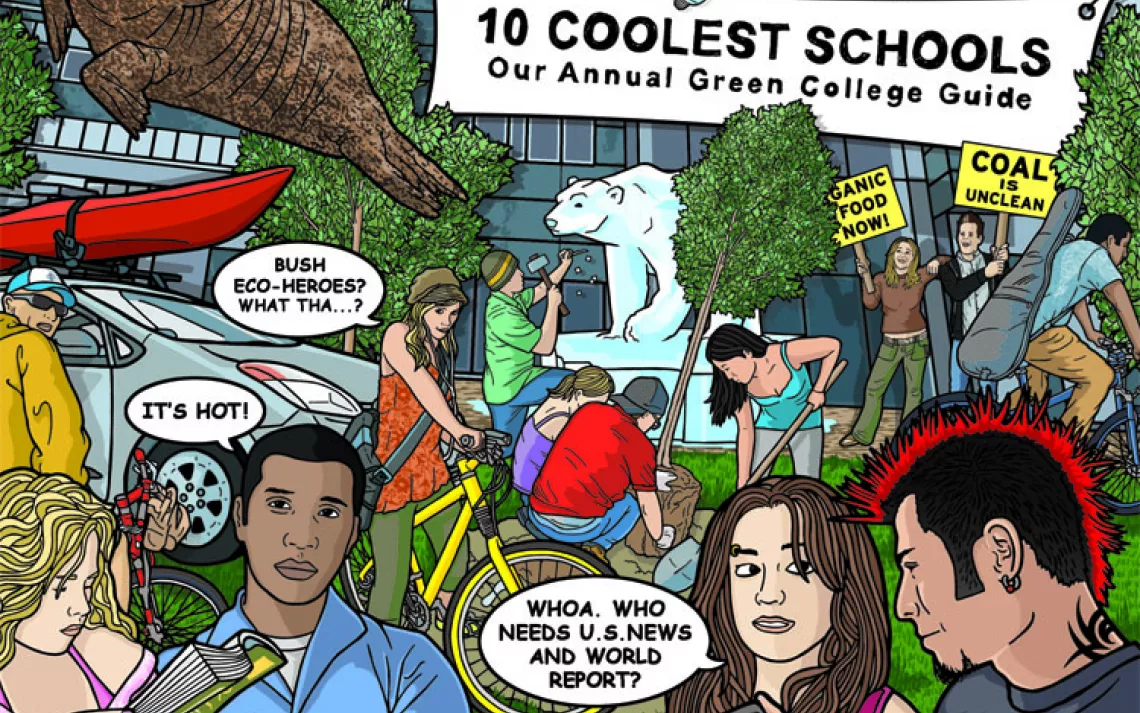Cool Crowd
Organic food? Check. Solar power, biodiesel buses, and composting? Check, check, check.

NOT LONG AGO small private colleges had a near monopoly on campus environmental initiatives in the United States. But today supersize public universities are nipping at the nimble, hemp-shod heels of those pioneers by adopting green building standards, expanding environmental studies programs, and converting fleets to zero-emission vehicles.
This represents a dramatic shift even from last year, when Sierra ran its first "Cool Schools" roundup and filled all but two of the top ten spots with private colleges. In the following pages, you'll find a diverse mix of institutions--from North Carolina's 850-student Warren Wilson College to Arizona State University, the country's second-largest school with 51,500 students.
The top schools earned points in ten categories: policies for building, energy, food, investment, procurement, and transportation; curriculum; environmental activism; waste management; and overall commitment to sustainability. A perfect score in every area would give a school 100 points.
Like every ranking system, ours is imperfect. To be sure, dozens more schools deserve praise. But after weeks of reporting and analysis, we're confident we picked the nation's environmental leaders.
That said, you might ask why the Eco League colleges and the University of California system--two environmentally proactive institutions--don't rank on this list. Schools in the Eco League consortium, which focuses solely on environmental studies, hardly play on a level field with schools that serve students in 150 degree programs. Meanwhile, the ten campuses of the UC system--neither wholly independent nor entirely unified--could not in fairness be compared as separate institutions. Sierra decided to feature them separately as "Shining Stars".
If you're excited about or frustrated with initiatives on your campus or convinced we've missed a great green school, we hope you'll join the conversation--so we can make next year's list even better.
 The Magazine of The Sierra Club
The Magazine of The Sierra Club